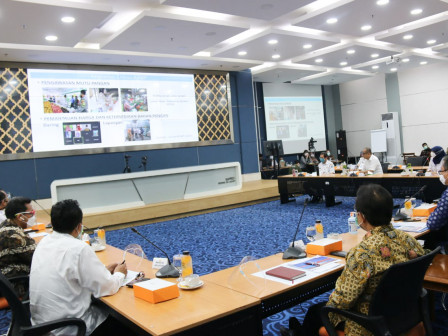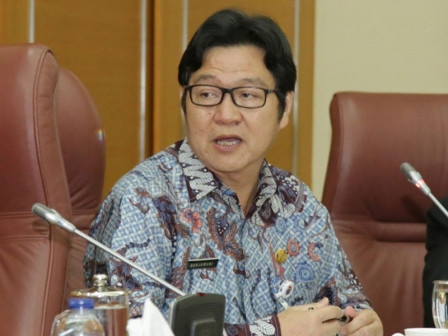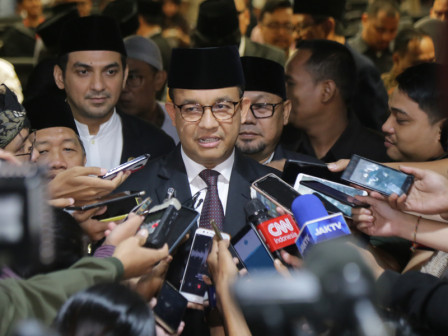Christmas and New Year, City Ensures to Maintain Food Supply and Prices
Reported by Rezki Apriliya Iskandar | Translated by Maria Inggita
Jakarta Government ensures food supplies and prices are maintained ahead of Christmas and New Year 2021. For information, inflation rate in Jakarta is relatively low until November 2020 which reached 1.32% (ytd) or 1.66% (yoy) annually. With this achievement, inflation rate in Jakarta by the end of 2020 is estimated to be lower than last year's rate (3.23% yoy) and below national inflation target with range 3% ± 1%.
We are also optimistic that Jakarta will recover faster because Jakarta has better infrastructure and preparation
The Jakarta economy in the third quarter of 2020 still grew negatively by -3.81% (yoy) but improved compared to the previous quarter (-8.23%, yoy). Along with the decline in the Jakarta economy, public demand also weakened so the impact on inflation declining.
October 2020, Inflation Rate in Jakarta Remains Low and Under ControlTherefore, Jakarta Inflation Control Team (TPID) will continue to oversee staple foods supplies and availability which support to restore Jakarta's economy. Jakarta TPID is actively monitoring and overseeing staple food commodities availability in Jakarta.
"We will also innovate to make distribution run well amid of pandemic, including selling BUMD food commodities through online platform and engineering logistic system," said Sri Haryati, Jakarta Acting Secretary (Sekda) after TPID High Level Meeting at Jakarta City Hall's Pola Room, as quoted from Jakarta PPID Press Release, on Wednesday (12/16).
Jakarta TPID through BUMD also supports economic recovery by providing raw materials for MSMEs at affordable prices and through social assistance distribution. Jakarta TPID is also active in providing information about food availability and supply, especially ahead of Christmas and New Year as well as updated staple food commodities prices in Jakarta daily through Jakarta Food Information (IPJ) and Staple Food Price Information Center (PIHPS) websites.
Furthermore, Jakarta TPID will continue to strengthen its coordination with various parties to support achieving national inflation target for 2021 of 3,0%±1%. Economy has started to recover since third quarter of 2020 which is expected to continue until the fourth quarter of 2020 and 2021.
"As economy improves, inflationary pressure is expected to increase. Coordination between Bank Indonesia, Jakarta Government, and central government through TPID and existing forums will continue to improve because it needs cooperation and policies synchronization from central to regional levels to control commodity prices.
This coordination focuses more on anticipatory steps which refers to roadmap that has been agreed upon and evaluate it periodically. With this effort, it is hoped inflation rate in Jakarta will be maintained in 2021 and support to achieve national inflation target of 3.0%±1%.
It is in line with direction from Jakarta Governor, Anies Baswedan, who stated that Jakarta will be a city that can recover economy faster due to better infrastructure and readiness for cooperation between institutions. It is hoped that TPID will not only maintain supply and prices but also ensure to maintain people's purchasing power.
"We are also optimistic that Jakarta will recover faster because Jakarta has better infrastructure and preparation. In the future, we will not only control prices but also ensure to maintain people's purchasing power," Anies said.
"From recent report, God willing, it is safe. In the future, we will ensure that in the first week of January there will be no interruptions in supply, at the same time we must immediately prepare work program for 2021 with realistic targets," he asserted.
In addition, he also appreciated innovation in providing information about inflation control, even become more user-friendly because it will merge into JAKI superapps. Besides, digital transformation will be needed by policy makers and society in general.
"Smart system is made to facilitate us in compiling our steps, while we also have information system to control inflation on supply and support economic activity growth. For BUMD, digital transformation must be completed in the future and task division must run well between demands collected by SKPDs and supply which carried out by BUMD," he explained.





